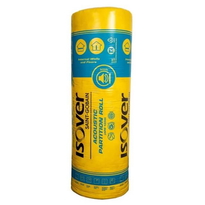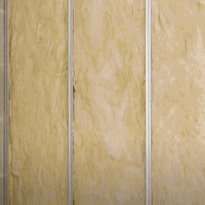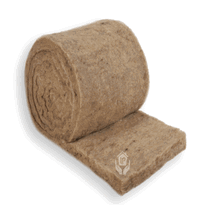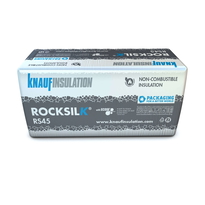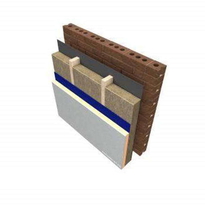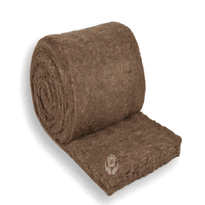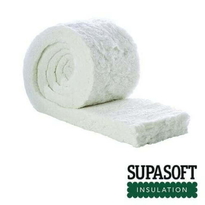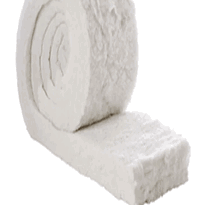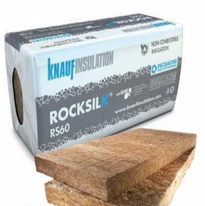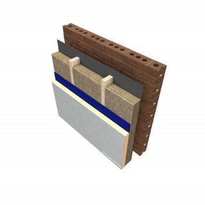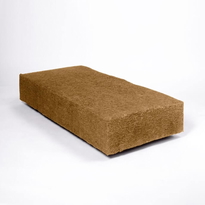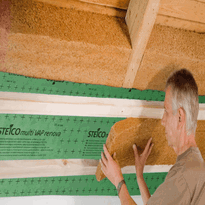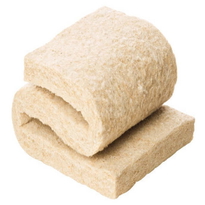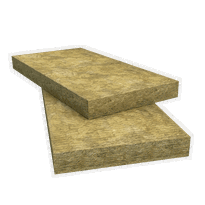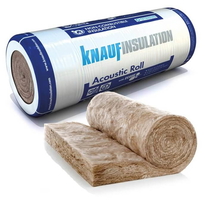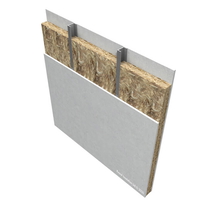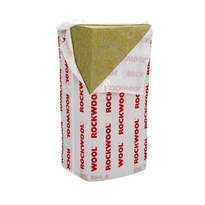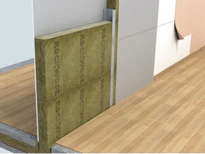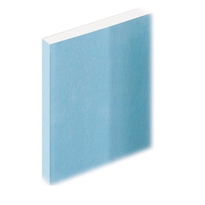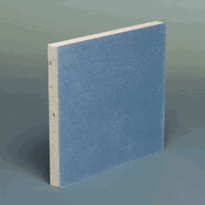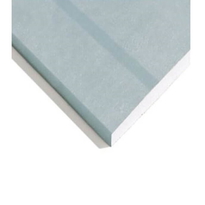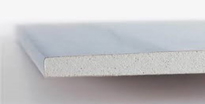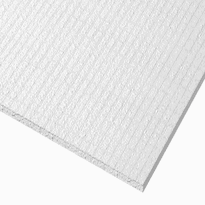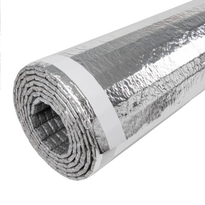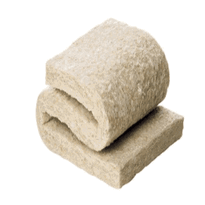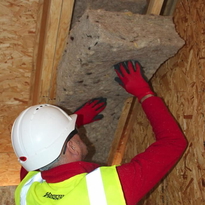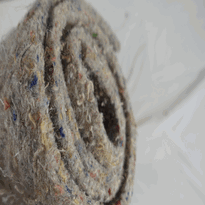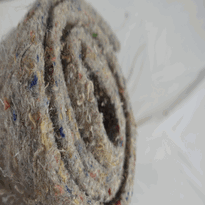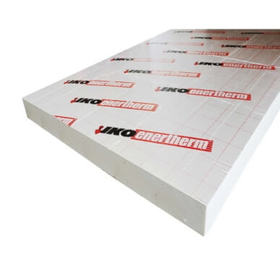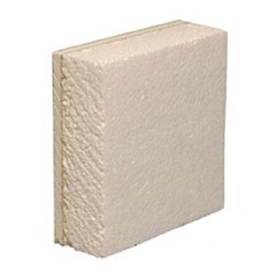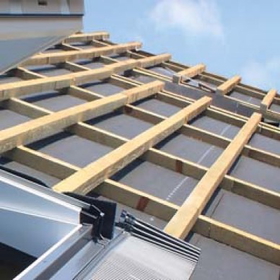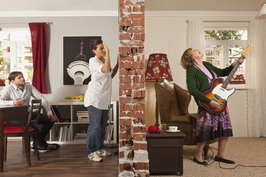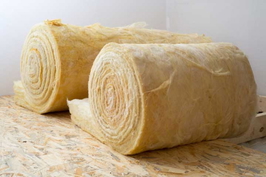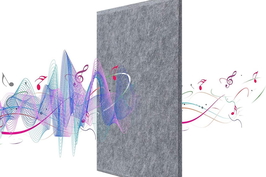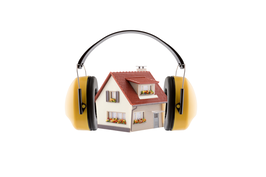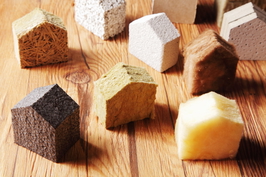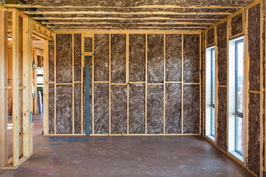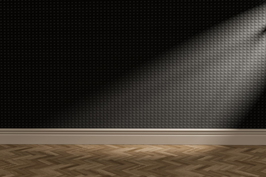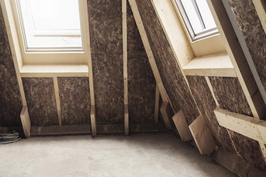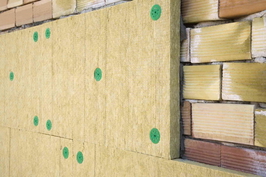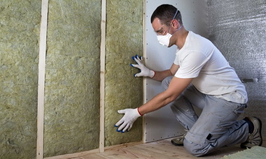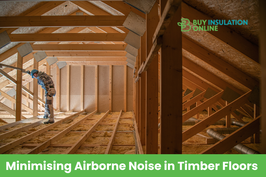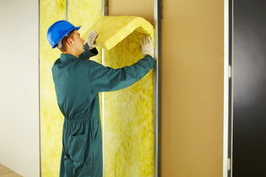Acoustic Insulation
We stock acoustic rolls, acoustic plasterboards and insulation batts made with high-density mineral wool and Gypsum that naturally dampens or reduces sound waves.
If you have any queries about acoustic insulation or need any more information on our product above, please do not hesitate to contact us. You can email us or call us and we will be happy to help you in any way we can.
Similar Categories
Soundproofing Your Home: A Guide to Acoustic Insulation
Soundproof insulation, also known as acoustic insulation or soundproofing, helps create a peaceful and quiet space in a noisy world. It works by reducing unwanted noise from outside sources like traffic, neighbours, or aeroplanes, as well as preventing inside sounds from disturbing others. Noise can have a big impact on your health, well-being, productivity, and privacy, so sound insulation is a valuable solution.
In this article, we'll explore the basics of soundproofing with insulation, the different types of noise you might encounter, and the benefits of soundproofing your house. We'll also look at the materials and methods you can use, so you can make informed choices when it comes to soundproofing.
Whether you want to keep external noise out or maintain peace indoors, this article will give you the knowledge, tips, and resources to reach your soundproofing goals. Welcome to the world of quiet and tranquillity through soundproofing.
What is Sound?
Sound is a form of energy that travels in waves through a medium such as air, water, or solid objects. When these waves reach our ears, they cause vibrations in our eardrums that are interpreted by our brains as sounds. The loudness of a sound is measured in decibels (dB), and the pitch of a sound is measured in hertz (Hz).
What is Noise?
Noise is any unwanted or unpleasant sound that interferes with our hearing or causes annoyance, discomfort, or harm. Noise can come from various sources such as human activities, machines, animals, or natural phenomena. Noise can affect our physical and mental health in various ways, such as:
- Causing hearing loss or damage
- Increasing stress levels and blood pressure
- Disrupting sleep quality and patterns
- Impairing cognitive performance and concentration
- Reducing communication and social interaction
- Lowering mood and satisfaction
According to the World Health Organization (WHO), noise pollution is a serious environmental issue that affects millions of people worldwide. The WHO recommends that the average noise level in residential areas should not exceed 55 dB during the day and 40 dB at night. However, many urban areas have noise levels that far exceed these limits.
What are the Types of Noise?
Noise can be classified into two main types: airborne noise and impact noise.
- Airborne noise is a noise that travels through the air and reaches our ears directly or indirectly. Examples of airborne noise include voices, music, TV, radio, traffic, aeroplanes, or sirens.
- Impact noise is noise that travels through solid structures and causes vibrations that are transmitted to the air. Examples of impact noise include footsteps, door slamming, furniture moving, drilling, or hammering.
Both types of noise can be annoying and disruptive, but they require different sound insulation solutions to reduce them effectively.
The Power of Silence
Sound insulation, often referred to as acoustic insulation or soundproofing, is the science and art of reducing or eliminating unwanted noise. Whether it's the incessant traffic outside your window, the rumbling of appliances, or the boisterous neighbours next door, soundproofing insulation offers a shield against auditory intrusions.
Soundproofing with Insulation
One of the most effective ways to achieve sound insulation is by using insulation materials specifically designed for this purpose. These materials are engineered to absorb, block, or dampen sound waves, preventing them from travelling through walls, ceilings, and floors. Let's explore some of the key aspects of insulation for soundproofing:
Materials of Silence
Mineral Wool Acoustic Insulation
Mineral wool, often used in sound insulation, is a versatile and effective choice. Its dense fibres absorb sound energy and provide both thermal and sound insulation. This makes it a popular option for insulating walls and ceilings in homes and commercial spaces.
Rockwool Soundproof Insulation
Rockwool, another high-density insulation material, excels in soundproofing applications. It is particularly effective in reducing airborne noise and can be used between floors and within walls to create a quieter indoor environment.
Acoustic Mineral Wool
Acoustic mineral wool takes the benefits of mineral wool a step further, offering superior sound absorption properties. It is ideal for acoustic panels and treatments in recording studios, theatres, and home theatres.
Acoustic Wool
Acoustic wool is designed to absorb sound waves and reduce reverberation. It's commonly used in auditoriums, music rooms, and any space where acoustic quality matters.
Sound Insulation Batts
We stock high-density sound insulation batts from the world’s leading brands like Knauf and Rockwool. These insulation batts are about 1200mm in length and 600mm wide. They are available in thicknesses ranging from 25mm to 150mm.
Batt insulation like RWA45, RS45, RS60, Rockwool Flexi and Rockwool Rainscreen Duo are made with high-quality mineral wool and are known for their superior thermal and acoustic insulation. They are semi-rigid and enable a perfect fit between rafters, floor and timber joists. They are versatile in application and hence can be used to insulate walls, food and roofs. They are also used for campervan insulation.
Acoustic Partition rolls
Acoustic rolls from top brands like Superglass and Knauf Insulations are insulation rolls made of high-density glass mineral wool. These fibreglass insulation rolls are about 1200mm wide and are pre-cut into 2/600 or 3/400mm slits to enable easy installation.
Acoustic insulation rolls are again versatile in application. They are used to insulate and soundproof walls, roofs and floors.
Acoustic Plasterboards
Acoustic Plasterboard is Made with superior-quality Gypsum, the Knauf sound Panel and the Knauf sound shield plus are specialist insulation boards that keep noise out. They are specially used in places where higher levels of soundproofing are required.
As mentioned earlier acoustic insulation not only helps you keep sound out but also increases the energy efficiency of your home. It saves energy and money whilst giving you extra room to relax.
Insulation Options for Soundproofing and Fire Protection
If you're looking to improve the sound insulation and fire protection in your home, there are a variety of insulation options to consider. Here are some popular choices:
- Dritherm 32 and Dritherm 37 Acoustic cavity wall insulation: This type of insulation is typically made from fibreglass that is effective at blocking sound waves. They are installed during the construction of the wall.
- Isover Party Wall Acoustic cavity wall insulation: This product is great for use in between party walls to block sound from adjoining properties such as terraced houses. Isover Party Wall 100mm acoustic insulation is guaranteed to help prevent noise pollution compared to uninsulated walls.
- Sound insulation board for walls: These boards are made from dense materials that are effective at blocking sound waves and are typically easy to install. They can be cut to fit the specific dimensions of a cavity and are often used in conjunction with other types of insulation to achieve optimal sound reduction. 2 popular products are listed below -
- RWA45 Rockwool sound insulation slab: Rockwool is a type of insulation that is made from volcanic rock and is known for its high resistance to heat and fire. It is also effective at blocking sound waves, making it a popular choice for insulation in a variety of applications. RWA45 insulation is available in slabs that can be easily cut to fit the specific dimensions of a cavity.
- RS45 Acoustic insulation slab: Knaud RS45 slabs are made from materials that are specifically designed to block sound waves and resist the spread of fire. They are typically easy to install and can be cut to fit the specific dimensions of a cavity.
What are the Benefits of Sound Insulation?
Sound insulation can have many benefits for your home and your quality of life. Here are some of the advantages of soundproofing your home:
Reduced noise pollution: By installing sound insulation in your walls, ceilings, floors, doors, or windows, you can block out unwanted noises from outside sources or prevent noises from inside your home from leaking out and disturbing others. This can create a more peaceful and comfortable environment for yourself and your family.
Improved health and well-being: By reducing noise pollution in your home, you can also improve your physical and mental health and well-being. You can avoid hearing loss or damage, lower your stress levels and blood pressure, enhance your sleep quality and patterns, boost your cognitive performance and concentration, increase your communication and social interaction, and raise your mood and satisfaction.
Increased privacy and security: By installing sound insulation in your home, you can also protect your privacy and security by preventing others from eavesdropping on your personal or professional matters. You can have more confidential discussions with your family members, friends, clients, or partners without worrying about being overheard. You can also enjoy more privacy in your bedroom or bathroom by blocking out noises from other rooms or outside sources.
Enhanced value and appeal: By installing sound insulation in your home, you can also enhance its value and appeal for yourself or potential buyers. Sound insulation can increase the comfort, functionality, and attractiveness of your home. It can also demonstrate your care and attention to detail for your property. Sound insulation can also help you comply with the building regulations for sound resistance, which may be required for new homes or conversions.
Efficient workplaces: Employers can work more quickly and hear the clients over the phone more clearly in offices that are calm, comfortable and have less noise or disturbance. Meetings held in conference rooms or closed-door meetings will remain confidential. Critical information won't leak out of the rooms and the halls are soundproof.
Thermal insulation: Mineral wool insulation that soundproofs also ensures that heat stays in. Mineral wool naturally dampens sound waves and restricts the transfer of heat through its fabric. So, you not only keep the sound out but also save energy and money.
The Science Behind Sound Insulation
Achieving effective sound insulation involves understanding the principles of sound transmission. Sound travels through three primary mechanisms: airborne, impact, and flanking noise.
- Airborne Noise: This type of noise includes voices, music, and other sounds that travel through the air. Insulation materials with high sound absorption properties, like mineral wool or acoustic mineral wool, are ideal for reducing airborne noise.
- Impact Noise: Impact noise results from physical contact, such as footsteps on a floor or a hammer striking a wall. Insulation materials like Rockwool excel at reducing impact noise.
- Flanking Noise: Flanking noise occurs when sound finds alternative paths around the insulated area, such as through gaps or adjacent structures. Proper installation and sealing of insulation are crucial to prevent flanking noise.
Installation Tips
To ensure your sound insulation project is a success, consider these installation tips:
1. Seal All Gaps and Cracks
Sound can find its way through even the tiniest openings. Seal gaps around doors, windows, and electrical outlets to maximize the effectiveness of your sound insulation.
2. Double-Up on Drywall
Adding an extra layer of drywall with a damping compound in between can significantly enhance soundproofing for walls.
3. Consider Mass-Loaded Vinyl (MLV)
MLV is a dense, flexible material that can be used as an additional sound barrier. It's particularly effective for reducing airborne noise.
4. Use Acoustic Caulk
Acoustic caulk is designed to seal joints and seams effectively. Apply it to all connections between walls, ceilings, and floors for added soundproofing.
Cost Considerations
The cost of soundproofing a room or an entire house can vary widely depending on the materials used, the size of the space, and whether you choose to hire professionals. For smaller DIY soundproofing projects, you can expect to spend a few hundred dollars on insulation materials. Larger-scale projects, such as soundproofing an entire home, can cost several thousand dollars.
How Much Does Soundproofing Cost?
The cost of soundproofing depends on the scope of the project. To get an accurate estimate, it's advisable to consult with professionals who can assess your specific needs.
Cheapest Acoustic Panels
If you're looking for budget-friendly soundproofing solutions, consider acoustic panels. They are cost-effective and can significantly improve sound quality in a room.
Cheap Soundproofing Material
While soundproofing materials can vary in price, there are affordable options available. Research different materials and techniques to find the best fit for your budget.
Cost of Soundproofing a Terraced House
Soundproofing a terraced house may require specific considerations, such as shared walls. The cost can vary, so it's essential to consult with experts to determine the most cost-effective approach.
Beyond Walls: Soundproofing Floors and Ceilings
Soundproofing isn't limited to walls; it extends to floors and ceilings as well. Here are some key considerations:
1. Underfloor Sound Insulation
If you live in a multi-story building, underfloor sound insulation can prevent noise from travelling between floors. It's especially useful in apartments and condominiums.
2. Sound Insulation in Walls
Sound insulation in walls is a crucial step in creating a peaceful living environment. It can make a significant difference in the quality of life in your home.
3. Sound Deadening Insulation
Sound deadening insulation materials, such as mineral wool or acoustic wool, are designed to reduce noise within a room, creating a more pleasant and enjoyable space.
The Art of Soundproofing
Sound insulation is both a science and an art. It requires a deep understanding of sound behaviour and the creative application of materials and techniques to achieve the desired results. Whether you're a homeowner seeking tranquillity or a business owner aiming to create a noise-free workspace, sound insulation offers a pathway to a quieter world.
What are the Best Practices for Sound Insulation Installation?
Sound insulation installation is a complex and technical process that requires professional expertise and equipment. Here are some of the best practices for sound insulation installation:
Consult an acoustic engineer:
An acoustic engineer is a specialist who can assess your noise problem and recommend the best sound insulation solution for your specific situation. An acoustic engineer can also design, test, and supervise the installation of sound insulation materials to ensure optimal effectiveness and compliance with relevant standards and regulations.
Choose the right materials and methods:
Different sound insulation materials and methods have different properties and performance levels that suit different noise sources, frequencies, intensities, and transmission paths. You should choose the right materials and methods based on your noise problem and your desired outcome. You should also consider other factors such as cost, durability, maintenance, aesthetics, and environmental impact when choosing sound insulation materials and methods.
Follow the manufacturer’s instructions:
Sound insulation materials come with specific instructions from the manufacturer on how to install them properly. You should follow these instructions carefully to avoid any mistakes or damages that could compromise the quality and effectiveness of sound insulation. You should also use the appropriate tools and equipment for installation.
Ensure airtightness:
Airtightness is essential for sound insulation as any gaps or cracks in the structure or surface can allow noise to leak through. You should ensure that all joints, seams, edges, corners, and openings are sealed with appropriate sealants, tapes, or gaskets. You should also avoid any penetrations or perforations in the sound insulation materials such as pipes, wires, vents, or outlets.
Add mass and damping:
Mass and damping are two key principles of sound insulation that help reduce noise transmission by increasing the resistance and absorption of sound waves. You should add mass and damping to your structure or surface by using thicker, denser, and softer sound insulation materials. You should also use multiple layers of different sound insulation materials to create a sandwich effect that enhances mass and damping.
Decouple structures and surfaces:
Decoupling is a sound insulation method that helps reduce noise transmission by creating a gap or separation between two structures or surfaces that are in contact with each other. The gap or separation acts as a barrier that prevents sound waves from travelling directly from one structure or surface to another. Decoupling can be done by using resilient materials such as rubber, springs, or clips that create an air space between two structures or surfaces.
Conclusion
In a noisy world, sound insulation helps you make peaceful places. It lets you hear the sounds you like without disturbance from unwanted noise. You can use materials like mineral wool or Rockwool or other acoustic solutions to do this. Sound insulation turns your space into a calm and quiet retreat.
So, when you want to escape from the noisy world outside, remember that sound insulation can bring you the quiet you seek.
Frequently Asked Questions
Q: What is acoustic insulation?
A: Acoustic insulation is a type of insulation that is specifically designed to reduce noise and sound transmission in buildings.
Q: How does acoustic insulation work?
A: Acoustic insulation works by absorbing or blocking sound waves, preventing them from passing through walls, floors, or ceilings.
Q: Why should I soundproof my house?
A: Soundproofing your house can help reduce noise from outside sources such as traffic or noisy neighbours, create a more peaceful and quieter indoor environment, and increase privacy.
Q: What are some common soundproofing materials?
A: Common soundproofing materials include acoustic panels, mass-loaded vinyl, soundproof curtains, fiberglass insulation, and acoustic foam.
Q: How can I soundproof a room?
A: To soundproof a room, you can use a combination of techniques such as adding acoustic panels to the walls, using soundproof curtains on windows, weatherstripping doors, and sealing any gaps or cracks.
Q: How can I soundproof a wall?
A: To soundproof a wall, you can use techniques like adding a layer of mass-loaded vinyl, using acoustic panels, or constructing a double-wall with an air gap in between.
Q: What is the best soundproofing method for reducing impact noise?
A: The best soundproofing method for reducing impact noise is to use materials that are specifically designed to absorb or dampen vibrations, such as acoustic underlayment or resilient channels.
Q: Can soundproof windows help reduce noise?
A: Yes, soundproof windows are designed with special glass and seals to improve sound insulation and can significantly reduce noise from outside sources.
Q: How do I choose the best soundproofing materials?
A: When choosing soundproofing materials, consider factors such as the level of noise you want to reduce, the type of noise (airborne or impact), the construction of your house, and your budget.
Q: Do I need professional help to soundproof my home?
A: While it is possible to soundproof your home on your own, hiring a professional soundproofing company can ensure that the job is done correctly and efficiently, especially for complex projects.




